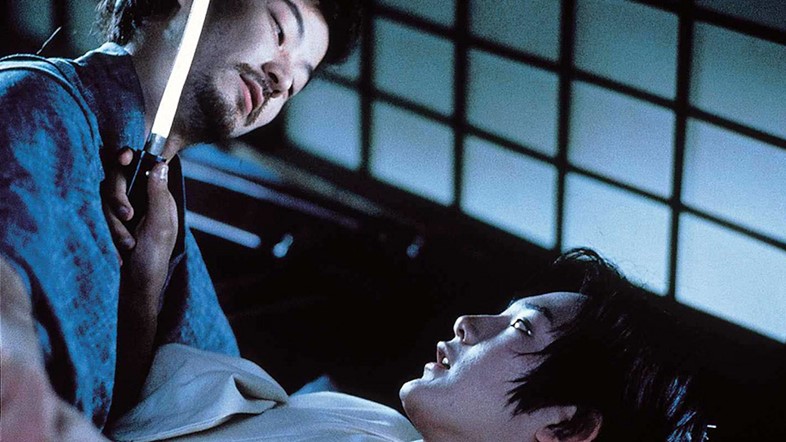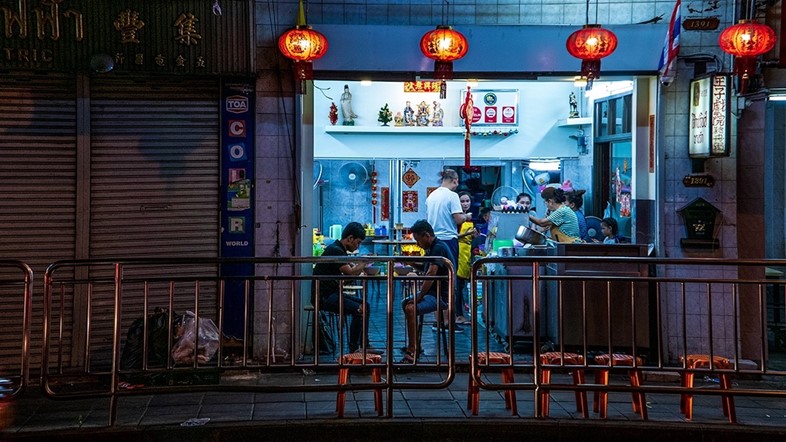LGBTQ+ movies from East and Southeast Asia are screening in London this September as part of Queer East Film Festival
The second edition of Queer East Film Festival launches in London this week, featuring 37 feature films from 15 countries that each explore how a queer landscape has been shaped across Asia in recent and distant history. With an emphasis on films that challenge conventional understandings of family kinship and reinterpret the idea of the family through a queer lens, the festival aims to work towards tackling inequalities both outside and within LGBTQ+ communities – and boasts a stellar line-up of films new and old.
Merry Christmas, Mr Lawrence, 1983
Among the most renowned works on show are two films from Nagisa Ōshima, a prolific and provocative director of the Japanese New Wave notorious for his sexually explicit cult classic In The Realm of the Senses (1976). The release of the latter resulted in the director being charged for obscenity in Japan – but his Palme d’Or-nominated 1983 anti-war classic Merry Christmas Mr Lawrence (Sunday 19 September, Catford Mews) was somewhat less disruptive.
Largely set within a Japanese PoW camp in Indonesia, Merry Christmas Mr Lawrence would receive international acclaim for its dramatic and compassionate portrayal of East-West relations on foreign soil at the height of the second world war. The film foregoes the action of typical war films in favour of a deep study into the human psyche, with queer undertones marking the complex relationship between the film’s magnetic leads – two titans of music in David Bowie and Ryuichi Sakamoto.
The latter was also responsible for the film’s BAFTA-winning score – commonly regarded as one of the greatest in cinema history, and a precursor to Sakamoto’s Oscar-winning score for Bernardo Bertolucci’s The Last Emperor (1987), and later acclaimed work on The Sheltering Sky (1990) and The Revenant (2015).

Gohatto, 1999
A second film from Ōshima receives a rare UK screening on Saturday, 25 September at the Genesis Cinema. Like Merry Christmas, Mr Lawrence, Ōshima’s final film Gohatto (also scored by Sakamoto) features an incredible cast – with powerhouse director and television personality Takeshi Kitano, fresh off his own Venice Golden Lion win for 1997 crime drama Hana-bi, appearing alongside the inimitable Tadanobu Asano in a queer samurai film set in the late 19th century. The atmospheric and tense drama, replete with lush cinematography and graceful camerawork, was also nominated for the Palme d’Or at Cannes in 2000 – and examines the disruption caused at a conservative military unit in Kyoto after an effeminate male teen (the superb Ryuhei Matsuda) joins the faction.
Years later, Kitano would star in the US remake of Ghost In The Shell opposite Scarlett Johansson. But the original 1995 anime by Mamoru Oshii will screen at the Lexi on Thursday, 23 September – a cyberpunk sci-fi masterpiece that imagines a future where sexual reproduction has been replaced by mechanical replication. Philosophical and visually resplendent, this classic animated text has also been acclaimed for its inversion of traditional gender roles and depiction of fluid sexuality, with cybernetic warrior lead Major grappling with questions of identity as she strives to reconcile her body and mind.
Leading female Japanese filmmaker Naoko Ogigami is also present via her touching 2017 film Close-Knit (Monday 20 September, Curzon Hoxton) – the tale of a schoolgirl who visits her uncle’s apartment to find him living with a beautiful transgender woman. The director also joins an online panel discussion on Saturday 18 September to explore how female filmmakers in East Asia have promoted equality onscreen and behind the camera.

Days, 2020
Beyond Japan, a selection of outstanding Taiwanese films mark some of Queer East’s best offerings – with the latest work from acclaimed slow cinema master Tsai Ming-Liang (Goodbye, Dragon Inn) a major highlight. Days (Sunday 19 September, Curzon Soho), a Golden Bear nominee at Berlin Film Festival in 2020, premiered in the UK at the BFI London Film Festival last year – where it was praised for its tender portrayal of a sexual relationship between two men in Bangkok. The film, largely void of dialogue and built upon static long takes, is deeply meditative – much like the works of another filmmaker working in Thailand, Apichatpong Weerasethakul – and excels through the transcendence of its rich imagery and dream-like pacing.
Another Taiwanese film closes the festival: Dear Tenant (Sunday, 26 September, Genesis Cinema) is the latest from Yu-Chieh Cheng – a domestic drama set in a rooftop apartment that weaves themes of love and sacrifice across multiple narrative strands. 81-year-old Chen Shu-fang, a veteran known for her roles in the films of Hou Hsiao-hsien, won the Golden Horse award for Best Supporting Actress for her role. She portrays Mrs Chou, an elderly woman and landlady suffering from late-stage diabetes, who believes that her tenant Chien-yi was responsible for the death of her oldest son; his former lover.

Moonlit Winter, 2019
And South Korean cinema gets a look-in via director Daehyung Lim, who was awarded the Best Director Prize at the Blue Dragon Awards for Moonlit Winter (Sunday 26 September, Curzon Hoxton). The film tells the tale of a student who finds a love letter sent to her mother from snowy Hokkaido in Japan, leading her on a journey into a mysterious past. It’s a subtle and tender chronicle, that excels in its understatedness.
Further afield, longform works from across China, Vietnam, Thailand, Singapore and Indonesia complete the festival’s rich line-up, alongside a series of shorts and talks.
Queer East Film Festival runs from 15 to 26 September.
